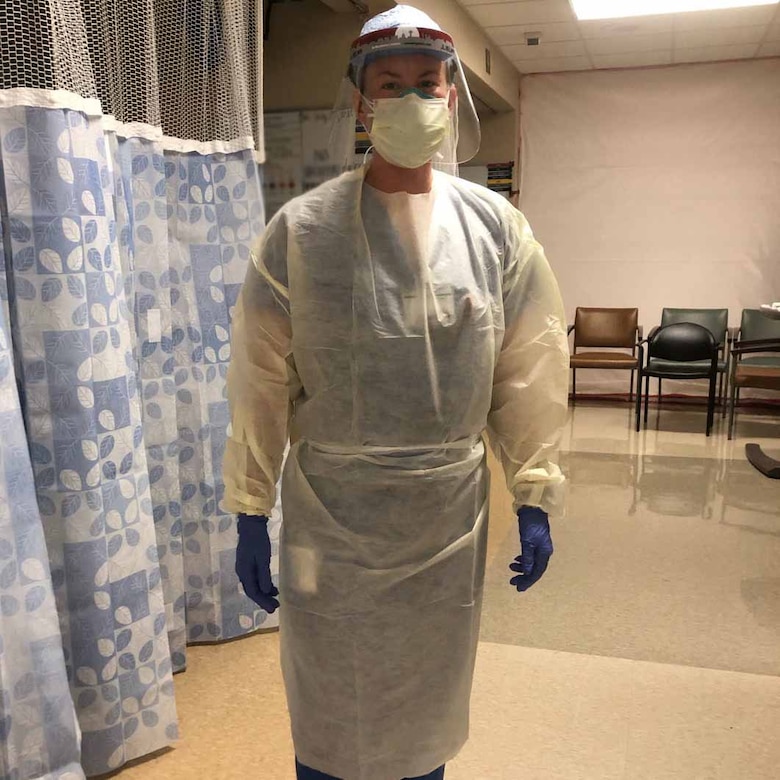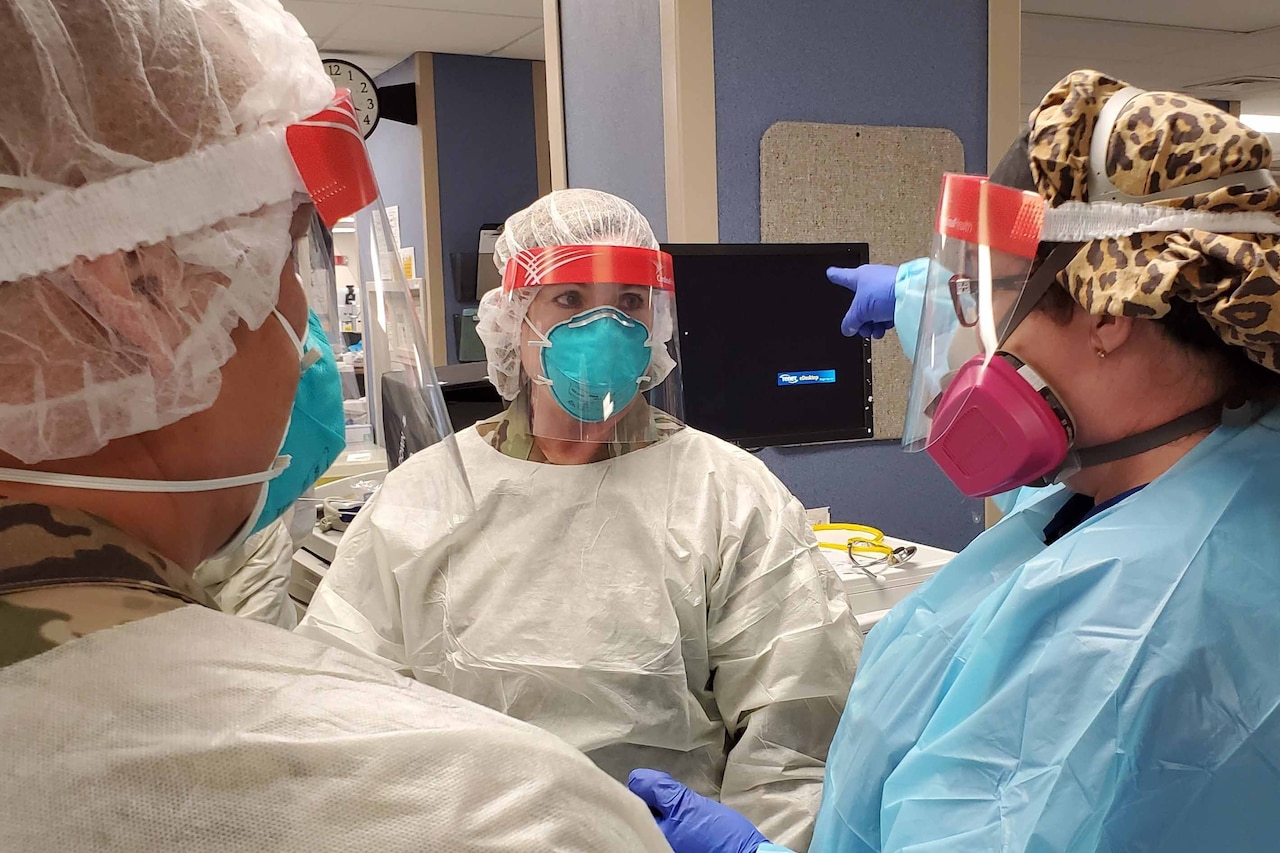Sept. 3, 2020 | , 502nd Air Base Wing
U.S. Army North is the U.S. Northern Command's Joint Forces Land Component Command responsible for the Defense Department's response to COVID-19.
The first UAMTF to arrive in San Antonio, designated UAMTF-627, began treating patients at five local hospitals July 9.
Army Capt. Sarah Kopaciewicz, a U.S. Army nurse from Madigan Army Medical Center at Joint Base Lewis-McChord, Washington, is one of those working hard to assist San Antonio medical personnel with their overload of coronavirus cases.
"We are working as critical care nurses, taking care of critically ill COVID-19 patients," she said. "Our nights are busy between managing patient care and communicating with their family members or loved ones."

Kopaciewicz said San Antonians have made her feel welcome in their facilities.
"The staff at Christus Santa Rosa Hospital Westover Hills has been very welcoming toward us," she said. "They have made it easy to ask questions regarding equipment, patient movement and hospital policies."
The importance of the mission is clear.
"This mission has proven that the military can work anywhere, anytime and in any environment to provide the best care for those in need," Kopaciewicz said.
Charles Reed, vice president and associate chief nursing officer at University Health System, is thankful the task force members arrived when they did.
"Seeing how patients overwhelmed healthcare systems around the world is something that you expect on the news or in the movies," he said. "It's not something that you would ever expect to happen in your own community. We were under a lot of stress during the surge, and the military staff was able to come in and provide immediate relief to our COVID-19 units."
Reed said local hospitals were in urgent need of assistance when the task force members started arriving.
"We needed a lot more staff to care for COVID-19 patients for several reasons: higher nurse-to-patient ratios, 'gatekeepers' to ensure staff was donning and doffing personal protective equipment appropriately and more beds converted to intensive care unit care," he said. "This higher level of acuity and the need for additional beds was not only stressful for the nursing staff but for the whole medical team, including physicians, respiratory therapists and technicians."
The military staff members provided support to the entire healthcare team quickly, Reed said.
"The ICU and acute care nurses were able to assimilate into our environment and become part of 'our' team," he said. "We had a 40 to 50% increase in the number of ventilated patients, with the same number of respiratory therapists and all working mandatory overtime. The military respiratory therapists provided immediate relief, allowing us to reduce the number of vents per therapist and giving us greater coverage in both the ICUs and in the acute care units, or ACUs."
The military licensed vocational nurses were also important to getting COVID-19 patients cared for, Reed said.
"The LVNs helped us by taking over the oxygen therapy, assessments and breathing treatments — the duty that we were going to have the registered nurses complete due to the shortage of respiratory therapists," he said.

To Reed and the staff members at University Health System, the task forces' assistance was essential to their ability to combat COVID-19.
"The military staff members provided us with the resources to open up additional beds and provide care to patients that we otherwise would not have had the resources to support," he said. "They also supported us mentally, by improving the morale of our staff through their support, camaraderie, presence, knowledge, skill and professionalism. We are extremely appreciative for all the military has done for our patients and our staff."
Army Lt. Col. Jason Hughes, the commander of UAMTF-627, said helping those in need is the purpose of the UAMTFs.
"We, individually and as an organization, exist to save and sustain lives anywhere in the world," he said. "This mission is special, and our soldiers brought a burst of energy to each of our five hospitals and hope to the community."
Hughes said the hospitals in San Antonio welcomed the task force members, some of whom they had worked with before.
"The leadership at each hospital did an excellent job of integrating us into their team, which was made easier because the local military health system has a strong relationship already in place," he said. "For example, University Health System understands how the military operates because of their day-to-day training partnership, so the process was seamless and some of the faces were familiar, which reduced the initial stress of onboarding."
"I cannot thank the hospitals enough; they welcomed us with open arms and took care of us like we were family," Hughes said. "I could not be more proud of how the military and civilian partners joined together to provide the care each American deserved in their time of need."
At the request of the Federal Emergency Management Agency and state officials, approximately 740 Defense Department medical and support professionals from the Army, Navy and Air Force are assigned as part of the department's ongoing COVID-19 operations in Texas and California.








No comments:
Post a Comment